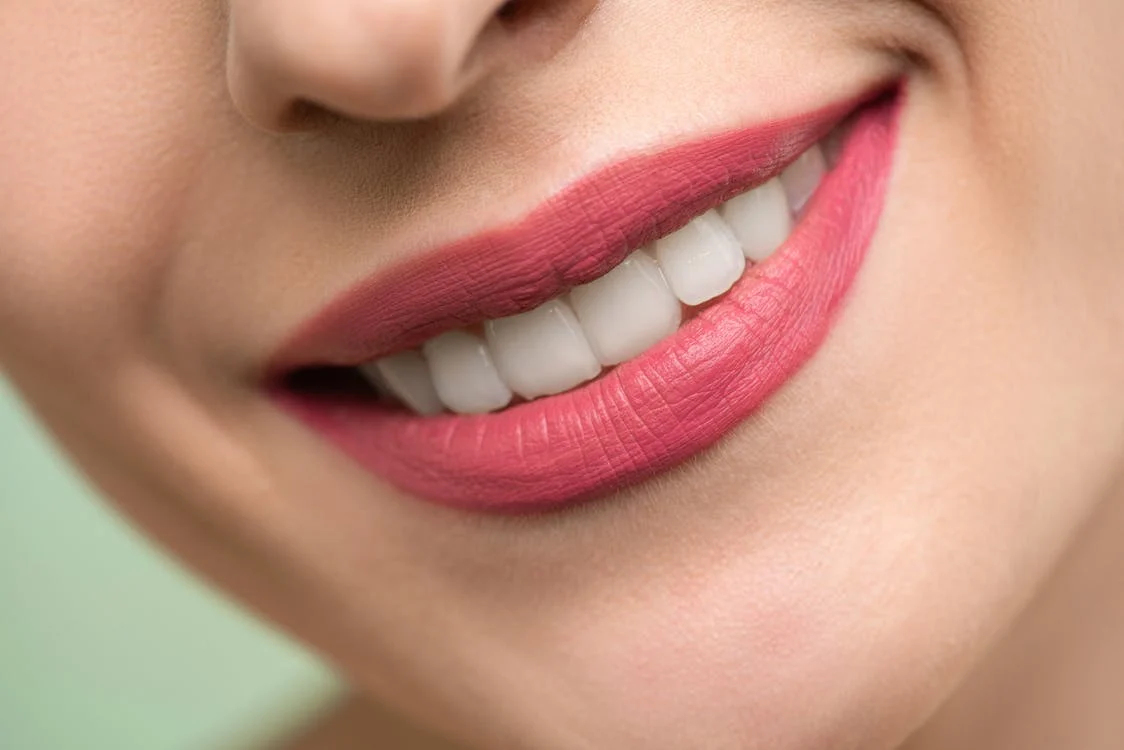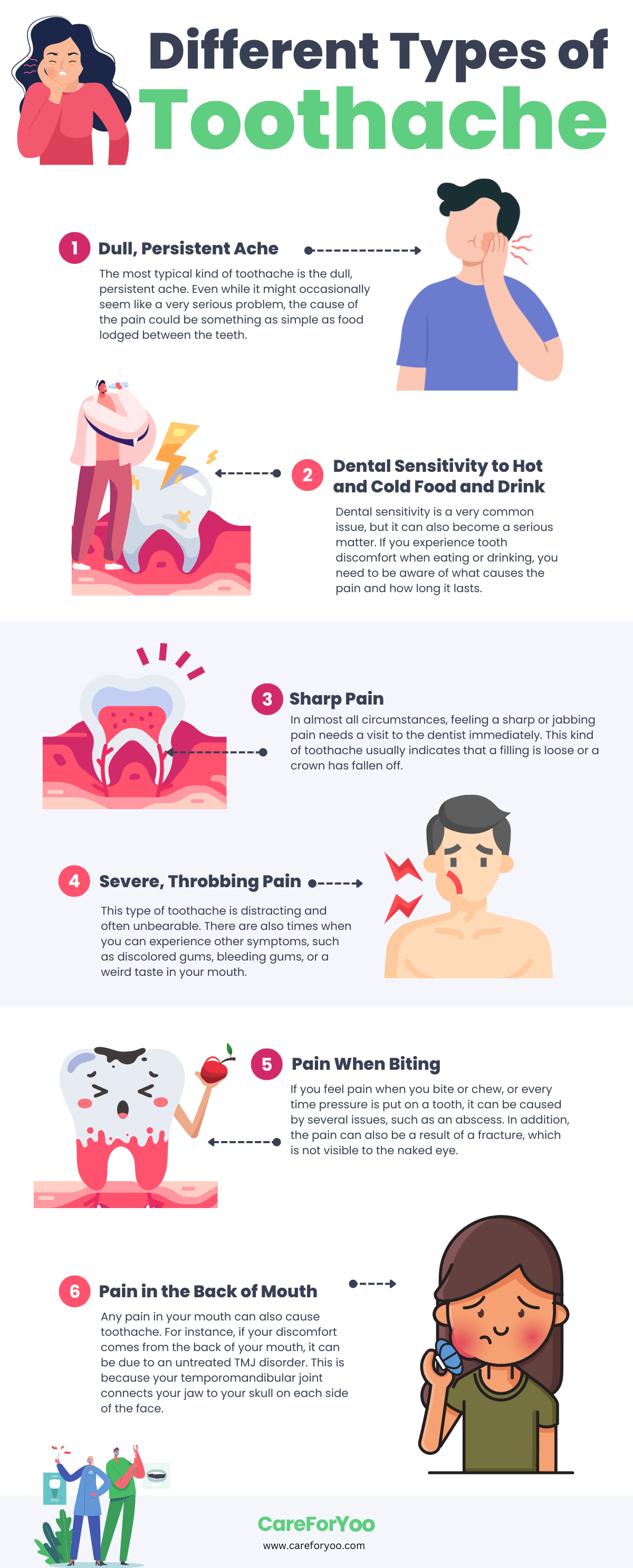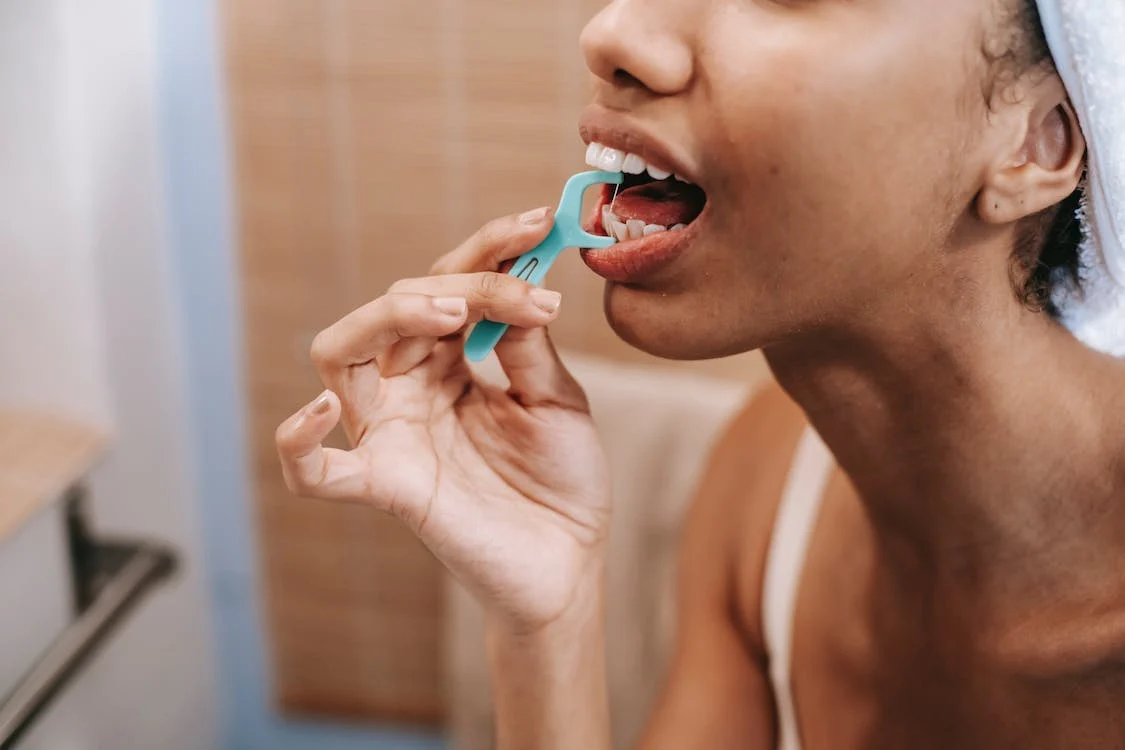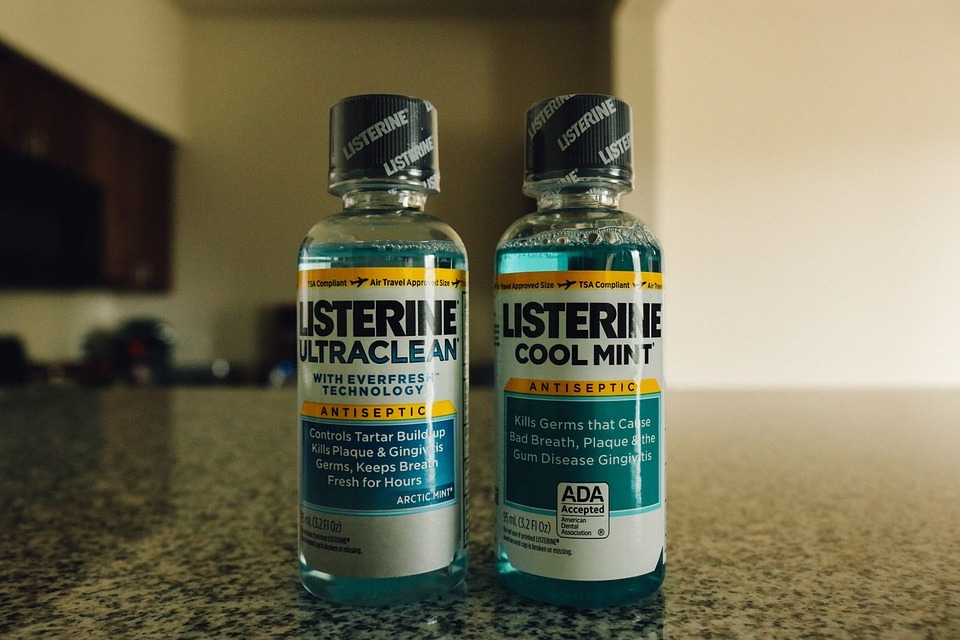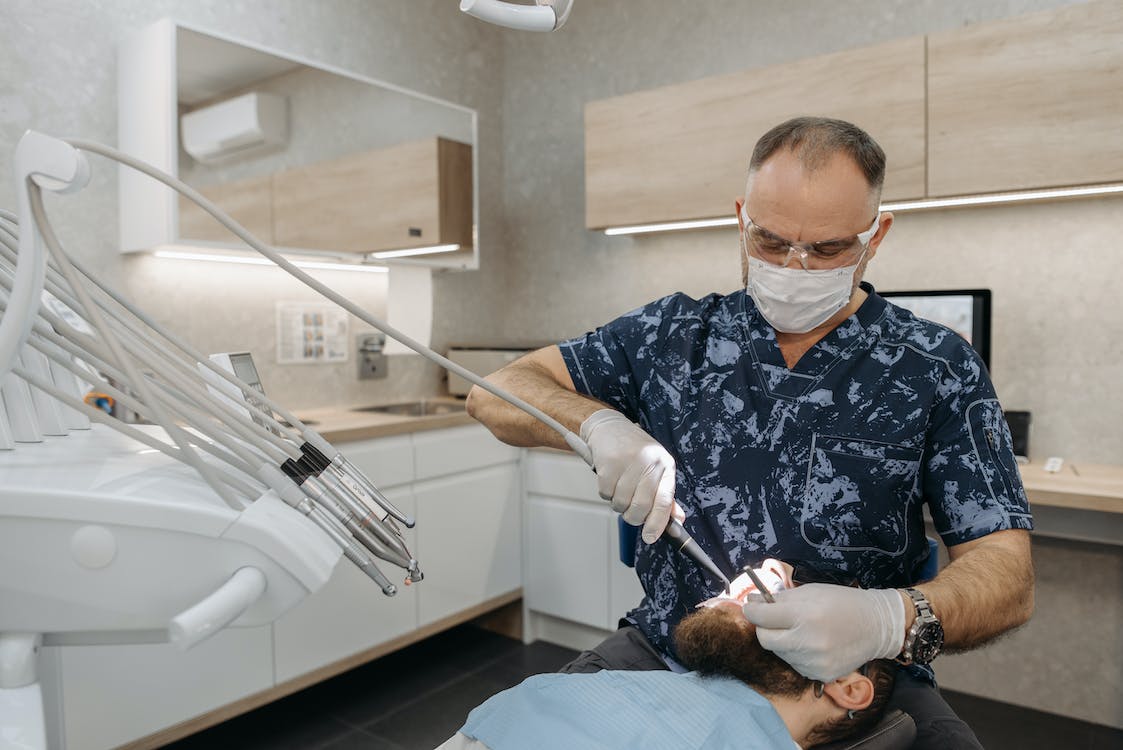Having a dazzling smile not only boosts your confidence, but also has an impact on your overall health. Research shows that poor oral health can increase the risk of heart disease, stroke, and even some cancers.
Taking care of your teeth has a positive ripple effect on your entire body, so it’s worth investing time and effort in its care. Not only do they enhance your smile and boost your confidence, but they also contribute to better sleep and digestion. By practicing good oral hygiene habits, you can experience a positive ripple effect on your entire life.
This post is dedicated to explaining how to maintain white, healthy teeth and harness the confidence-boosting potential of a winning grin. So let’s dive in and discover how to keep your teeth shining bright!
9 Ways to Keep Your Teeth Healthy and Shiny
Maintaining healthy teeth is essential for your overall well-being, whether you’re concerned about the appearance of your discolored or yellowed teeth or the health of your gums. Get ready to show off your brightest smile with these tips.
1. Brush Your Teeth Religiously
To keep your pearly whites shining bright, it’s important to get your brushing technique down pat. According to the American Dental Association, it’s best to brush at least twice daily – ideally when you wake up and before you hit the hay. After enjoying sweet or acidic treats, be sure to give your pearly whites a quick scrub.
This simple step can prevent harmful substances from damaging your teeth and keep them looking shiny and healthy. One can feel different types of toothache if they don’t brush their teeth properly.
The correct brushing technique involves holding your toothbrush at a 45-degree angle to your teeth and using gentle circular motions to clean the front, back, and top surfaces of your teeth. Be sure to brush your tongue and the roof of your mouth as well to remove bacteria and freshen your breath.
Handy Tip: Avoid brushing too hard or vigorously, as this can damage your enamel and irritate your gums.
The secret to achieving a healthy and shiny smile may just be in your toothbrush and toothpaste selection. A soft-bristled toothbrush is gentle on your teeth and gums, while a medium or hard-bristled brush can cause damage. On the other hand, look for toothpaste that contains fluoride, which helps to strengthen enamel and prevent tooth decay.
Experts suggest replacing your trusty toothbrush every three to four months to ensure maximum effectiveness. Plus, frayed or worn bristles can cause damage to your teeth and gums, so it’s also important to keep an eye on the condition of your toothbrush.
2. Floss Daily
Flossing removes bacteria, plaque, and debris effectively from the tight spaces between your teeth. Maintaining a consistent flossing routine is a vital aspect of achieving optimal oral health. Unfortunately, statistics reveal that only 30% of Americans floss daily, leading to an increase in dental problems.
In addition, proper flossing techniques are crucial for individuals with dental appliances such as braces, as these devices create additional areas for food particles and debris to accumulate, leading to potential dental problems. It’s also important for people with gum disease, as flossing can help to remove plaque and prevent further damage to the gums.
The correct flossing technique involves gently sliding the floss between your teeth and along the curve of each tooth, using a back-and-forth motion. Be sure to floss both sides of each tooth, including the back molars.
Handy Tip: Avoid snapping the floss, as this can cause injury to your gums.
Picking suitable dental floss can significantly impact your oral care regimen. If you’re looking for floss that glides effortlessly between your teeth, waxed floss is the way to go. On the other hand, unwaxed floss is better for getting into those hard-to-reach areas. Flavored floss can give you an extra burst of freshness, and floss picks are a convenient option for flossing on the go. So, grab some floss, and let’s keep the teeth shining.
3. Use Mouthwash
Using mouthwash regularly can benefit your oral health in several ways. It can freshen your breath, reduce the risk of gum disease, and even help reduce the buildup of plaque on your teeth. A recent study found that using mouthwash can significantly reduce buildup of plaque.
When choosing a mouthwash, look for one that contains fluoride to help strengthen your enamel and prevent tooth decay. If you have sensitive teeth, look for a mouthwash that is designed for sensitive teeth and gums. Some mouthwashes also contain antibacterial ingredients to help kill germs and reduce the risk of gum disease.
To use mouthwash correctly, swish a small amount around your mouth for 30 seconds to 1 minute, making sure it reaches all areas of your mouth, including between your teeth and along your gum line. Avoid swallowing the mouthwash, as some contain alcohol or other ingredients that can be harmful if ingested.
Using mouthwash as part of your regular oral hygiene practice can be a quick and easy approach to keeping your teeth and gums healthy. Although it shouldn’t take the place of brushing and flossing, it can be used in conjunction with other practices to help maintain clean, healthy teeth and gums.
4. Eat a Healthy and Balanced Diet
What you eat can make a big difference on your dental health. Certain foods in your diet can help strengthen your teeth and prevent common dental issues. Here are some tooth-friendly foods that are good for your teeth:
- Calcium-rich foods like cheese, milk, and yogurt can help strengthen tooth enamel.
- Fruits and vegetables such as apples and carrots can help clean teeth while promoting saliva production to neutralize harmful acids.
On the other hand, some foods can be harmful to your teeth:
- Sugary and starchy foods like candy, cookies, and potato chips can stick to teeth and cause bacteria to produce acid, which leads to tooth decay.
- Eating too much acidic foods like citrus fruits and vinegar can erode tooth enamel, making teeth more susceptible to decay and sensitivity.
To maintain healthy and shiny teeth, it is important to maintain a balanced diet with plenty of fruits, vegetables, dairy products, and lean proteins.
5. Drink Enough Water
A refreshing glass of water doesn’t just quench your thirst, it also helps wash away harmful bacteria and food particles that can lead to tooth decay and bad breath. Staying hydrated with water is like giving your teeth a natural cleansing, without the need for any harsh chemicals or treatment of teeth.
Water helps wash away food particles and debris from your mouth, preventing them from sticking to your teeth and causing plaque buildup. This is especially important after meals when bacteria in your mouth feed on sugar and produce harmful acids that can erode tooth enamel. Drinking water can also help to increase saliva production, which is essential for neutralizing harmful acids and maintaining a healthy pH balance in your mouth.
In addition to its cleaning and hydrating benefits, drinking water can also help prevent dry mouth, a condition that occurs when there is not enough saliva in your mouth. A dry mouth can lead to bad breath, tooth decay, and gum disease. By drinking plenty of water regularly throughout the day, you can help keep your mouth moist and prevent these problems.
To ensure you’re drinking enough, aim for at least eight glasses of water a day. You can also boost your water intake by eating water-rich fruits and vegetables like watermelon and cucumbers. So, make sure to keep yourself hydrated with water to keep your smile naturally shiny and healthy.
6. Avoid Sugary and Acidic Drinks
There’s a lot of interesting things about sugar, but not much good when it comes to teeth. Sugary and acidic drinks can easily damage the outer enamel, leading to cavities or worse. Sugary drinks like soda and fruit juice are loaded with sugar, which can fuel the growth of bacteria in your mouth and cause tooth decay.
Additionally, acidic drinks like sports drinks and energy drinks can erode tooth enamel, making your teeth more susceptible to decay and sensitivity. These drinks can also lead to dry mouth, which can cause bad breath and contribute to tooth decay.
Reducing your consumption of sugary and acidic drinks can significantly benefit your dental health. You can take the first step by checking the labels and choosing low-sugar and acid options. Diluting your drinks with water, drinking through a straw, and keeping up with your brushing and flossing routine can further protect your teeth.
Handy Tip: If you’re looking for alternatives to sugary and acidic drinks, consider drinking water, unsweetened tea, or milk. These drinks not only promote good oral health, but also provide essential nutrients like calcium that can help strengthen your teeth.
7. Limit Snacking
While it’s possible to brush your teeth after every meal, not everyone has the time to brush after every snack. However, these snacks can do more harm to your teeth than regular meals, especially since people often consume unhealthy snacks.
Healthy snacking options include fresh fruits and vegetables, plain yogurt, cheese, and nuts. These foods are rich in nutrients that can help strengthen your teeth and gums. However, even healthy snacks can cause damage to your teeth.
For example, the sweet apple or pack of nuts you ate may be good for your overall health, but can lead to bad breath after a while if you don’t brush. Besides, the small particles of snacks can get stuck in your teeth as well.
Reducing your snacking can be challenging, but some tips can help. One strategy is to plan your meals and snacks ahead of time so that you’re less likely to reach for unhealthy options. Another tip is to brush your teeth after meals and snacks to remove any food particles that may be stuck in your teeth.
8. Chew Sugar-Free Gum
Chewing sugar-free gum is not just a tasty habit, but also a smart dental hygiene practice. Studies have revealed that chewing gum after meals and snacks can aid in maintaining optimal oral health. Chewing gum triggers an increase in saliva production, which effectively neutralizes harmful acids and washes away stubborn food particles that can wreak havoc on your pearly whites.
Indulging in a stick of sugar-free gum can do more for your oral health than just freshening your breath. Firstly, it can improve your oral hygiene by removing food particles that may be stuck in your teeth. Secondly, chewing gum can help prevent dry mouth, which can lead to tooth decay and bad breath.
To get the most out of your sugar-free gum and optimize its oral health benefits, it’s important to pick the right kind. Look for gum that contains xylitol, a natural sweetener that can help reduce the risk of tooth decay. Xylitol can help prevent the growth of harmful bacteria in the mouth, which can contribute to cavities and gum disease.
Although chewing sugar-free gum has its perks for your teeth, it’s not a replacement for your daily dental care routine. It’s still important to maintain good oral hygiene habits, such as brushing twice a day for two minutes and flossing daily. So, keep that pack of gum in your back pocket, but don’t forget to give your teeth the attention they deserve.
9. Regular Dental Check-Ups
Nearly 35% of adults between the ages of 18 and 64 miss out on a crucial part of their dental health routine. These visits are an essential aspect of keeping your teeth and gums in tip-top shape. Even if you religiously brush and floss, there’s simply no substitute for a thorough dental examination.
Don’t let dental care take a backseat in your busy schedule. Regular dental visits help prevent oral health problems before they become serious issues. Most dentists recommend scheduling these appointments at least twice a year, but more frequent visits may be necessary depending on your individual needs.
It’s estimated that 50% of adults over 30 will experience gum disease at some point in their lives, but with proper care and attention, it can be treated and prevented from causing further damage. Ignoring the signs of gum disease can have serious consequences, including tooth loss and potential links to heart disease and stroke. Stay ahead of the game by scheduling those dental check-ups regularly.
Conclusion
Healthy and shiny teeth don’t just happen overnight, but with consistent effort and good oral hygiene practices, you can achieve this goal. Incorporating habits like limiting snacking and regular dental check-ups into your oral care routine can make a lot of difference. Not only will you have a brighter smile, but you’ll also improve your overall health.
Your dentist is your partner in maintaining healthy teeth. They can provide professional cleanings, identify and treat any oral health issues, and offer guidance on the best oral care practices for your individual needs. So don’t forget to schedule regular check-ups to keep your teeth and gums in great shape.
In the end, taking care of your oral health is not only essential for healthy and shiny teeth, but it’s also crucial for your overall health and well-being. By following these practices, you’ll be well on your way to a healthier, happier smile that shines bright for years to come!

